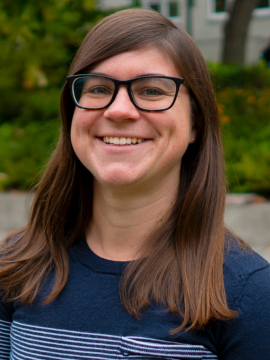Wetlands in a changing world: processes, feedbacks and the climate benefits of wetlands
Time: 12:30pm to 1:20pm
Note: This seminar will be Zoom only.
View video here.
Talk summary:
Among the numerous ecosystem services provided by wetlands climate regulation is identified as one of their most important benefits to society. Wetland ecosystems play an important role in the global carbon cycle; they provide the ideal environment for long-term storage of atmospheric CO2, yet they are also the largest single source of methane. Climate change could increase greenhouse gas (GHG) emissions from wetlands, however, the consequences of rising temperatures on wetland GHG exchange remains uncertain. Furthermore, preventing further wetland loss and restoring wetland ecosystems has been identified as important in limiting future emissions to help meet climate goals. This talk presents research that combines field-based measurements, remote sensing, and modelling to provide new insights into the controls of wetland GHG fluxes across a range of spatial and temporal scales and quantify the potential climate benefits of wetland restoration and conservation.

Bio:
Dr. Sara Knox is an assistant professor in the Department of Geography at the University of British Columbia. She received a B.Sc. in Earth System Science from McGill University, a M.Sc. in Geography from Carleton University, and a Ph.D. in Environmental Science, Policy and Management from the University of California, Berkeley. Dr. Knox leads the integrated GHG Research and Observations in Wetlands (iGROW) research program, which takes an interdisciplinary approach to provide a better understanding of how wetland responses to climate variability and restoration can feedback to slow or accelerate future climate change.